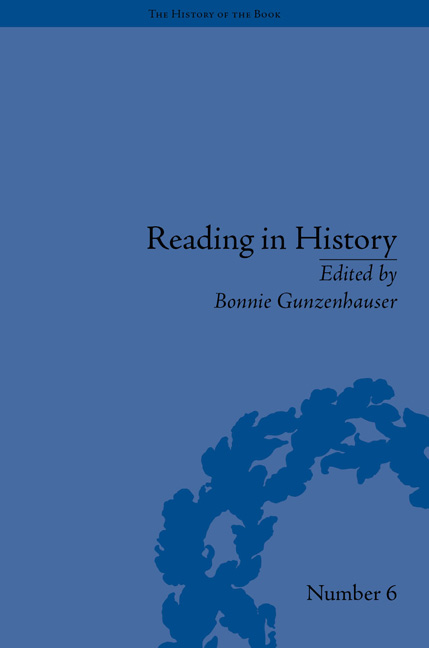Book contents
- Frontmatter
- CONTENTS
- Acknowledgements
- List of Contributors
- Introduction
- Section I Artefactual Methodologies
- Section II Paratextual Methodologies
- Section III Institutional Methodologies
- 6 Women Reading Shakespeare in the Outpost: Rural Reading Groups, Literary Culture and Civic Life in America
- 7 Turning Libraries into Public Works: Funding Arguments on the Local Level in Wilkes-Barre and Scranton, Pennsylvania
- 8 Explicating Explications: Researching Contemporary Reading
- Notes
- Works Cited
- Index
6 - Women Reading Shakespeare in the Outpost: Rural Reading Groups, Literary Culture and Civic Life in America
from Section III - Institutional Methodologies
- Frontmatter
- CONTENTS
- Acknowledgements
- List of Contributors
- Introduction
- Section I Artefactual Methodologies
- Section II Paratextual Methodologies
- Section III Institutional Methodologies
- 6 Women Reading Shakespeare in the Outpost: Rural Reading Groups, Literary Culture and Civic Life in America
- 7 Turning Libraries into Public Works: Funding Arguments on the Local Level in Wilkes-Barre and Scranton, Pennsylvania
- 8 Explicating Explications: Researching Contemporary Reading
- Notes
- Works Cited
- Index
Summary
In 1898, the Woman's Shakespearean Club of Barnesville, Georgia, offered the following summary of their current activities:
The report of this club … gives a membership of twenty-five active women, who have done much good work in various directions. The literary study has been confined to Shakespeare, and this section, aided by the club, is working to establish a good reference library which will be useful to all students. But this is only one of the directions in which a wise activity is showing good results. Mrs. Cochrane, the president, has established a night school for factory hands with thirty-two pupils, club members giving their services as teachers. A Factory Girls' Club has also been organized and permanently established in club-rooms, where a committee from the ‘Shakespearean’ meets the girls, to furnish guidance in their instruction and entertainment. Under the auspices of the club a course of university extension lectures has been enjoyed by the community.
In this rural town halfway between Atlanta and Macon, education, literary study of Shakespeare and other writers, and civic involvement were intimately interconnected. To explore the ramifications of this account further, this essay examines what rural Americans read in the late nineteenth and early twentieth centuries, how they read and why it mattered. Using Shakespeare as an example, I will argue that reading habits of rural Americans, particularly women, played a key role both in the formation of American literary culture and in civic life. The practices of these rural reading clubs – Shakespeare clubs in particular – demonstrate that some disciplinary commonplaces about the relation between geographical situation and readerly habits and behaviour require significant rethinking.
At the end of the nineteenth century, Shakespeare clubs began to develop in large cities as well as small towns in almost every state. Most Shakespeare clubs followed a similar pattern for meetings and activities, gathering once or twice a month except during the summer, and covering three or four plays a year.
- Type
- Chapter
- Information
- Reading in HistoryNew Methodologies from the Anglo-American Tradition, pp. 91 - 100Publisher: Pickering & ChattoFirst published in: 2014

